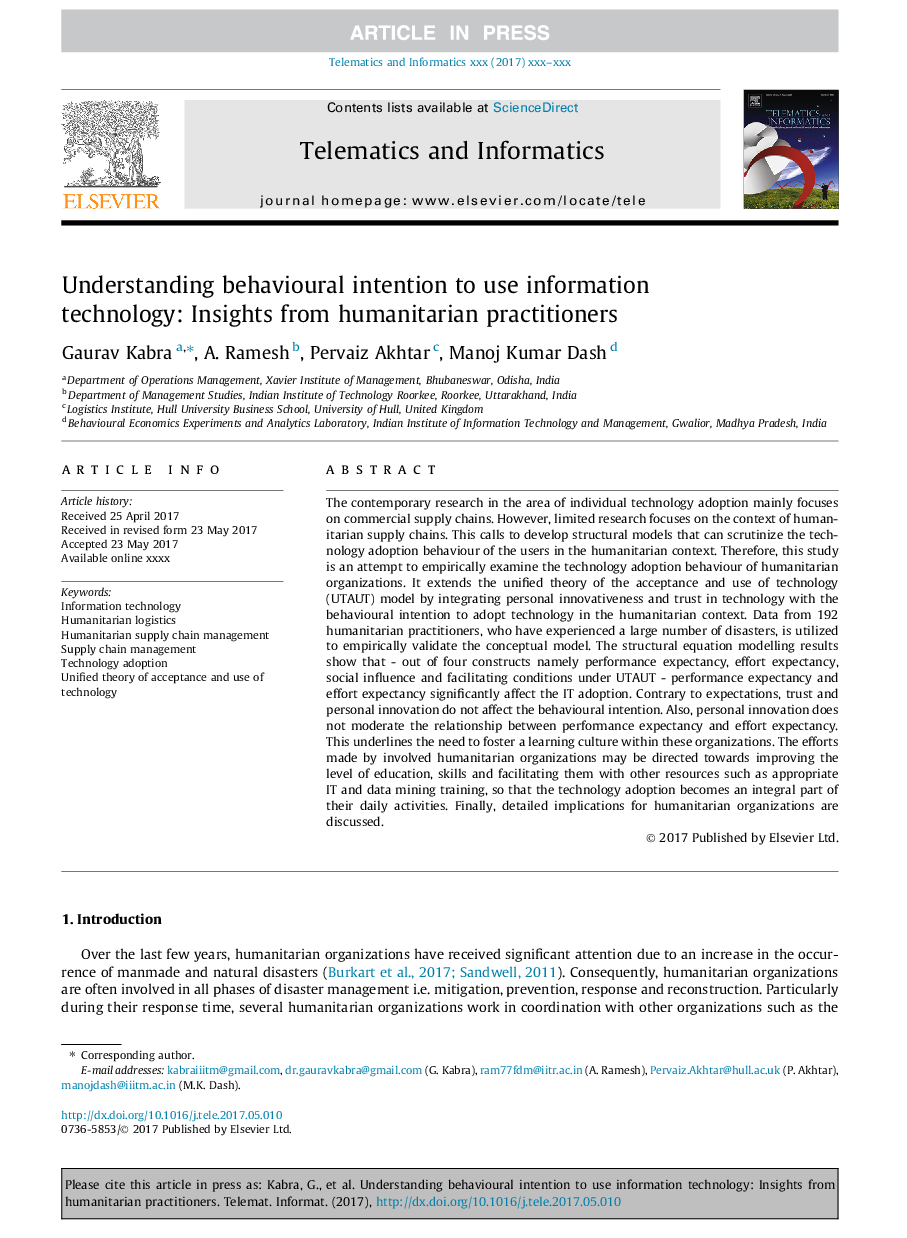ترجمه فارسی عنوان مقاله
درک قصد رفتاری برای استفاده از فناوری اطلاعات: بینش از متخصصین بشردوستانه
عنوان انگلیسی
Understanding behavioural intention to use information technology: Insights from humanitarian practitioners
| کد مقاله | سال انتشار | تعداد صفحات مقاله انگلیسی |
|---|---|---|
| 113392 | 2017 | 12 صفحه PDF |
منبع

Publisher : Elsevier - Science Direct (الزویر - ساینس دایرکت)
Journal : Telematics and Informatics, Volume 34, Issue 7, November 2017, Pages 1250-1261
ترجمه کلمات کلیدی
فناوری اطلاعات، تدارکات بشردوستانه، مدیریت زنجیره تامین انسان دوستانه، مدیریت زنجیره تامین، پذیرش فناوری، تئوری یکپارچه پذیرش و استفاده از فناوری،
کلمات کلیدی انگلیسی
Information technology; Humanitarian logistics; Humanitarian supply chain management; Supply chain management; Technology adoption; Unified theory of acceptance and use of technology;

